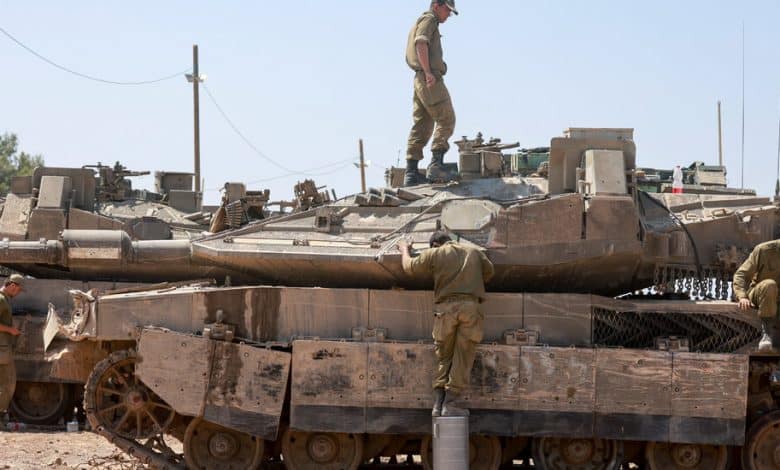Israel ponders a response to Iran’s attack, with each choice a risk.

Israeli leaders on Tuesday were debating how best to respond to Iran’s unprecedented weekend airstrike, officials said, weighing a set of options calibrated to achieve different strategic outcomes: deterring a similar attack in the future, placating their American allies and avoiding all-out war.
Iran’s attack on Israel, a barrage of hundreds of ballistic missiles and exploding drones, changed the unspoken rules in the archrivals’ long-running shadow war. Until this month, the two nations had refrained from launching major airstrikes from one country’s territory directly at the other’s.
Now, the calculus that Israel must use to decide its next move has also changed, according to the Israeli officials, who requested anonymity to discuss Iran. The government is making the decision under diplomatic pressure from allies who want it to de-escalate the conflict. American officials have publicly and privately tried to persuade Israel that it does not need to retaliate for the Iranian strike, which did little damage.
But Israeli officials disagree. “We cannot stand still from this kind of aggression,” Rear Adm. Daniel Hagari, the spokesman for Israel’s military, said on Tuesday. Iran, he added, would not get off “scot-free.”
Iran’s attack was a response to an Israeli airstrike in Syria that destroyed a building in Damascus that was part of the Iranian embassy complex, normally considered off-limits to attack, and killed several of Iran’s high-ranking military officials. Israeli officials have said the building was used as an Iranian military and intelligence base, making it a legitimate target.
There is now an internal debate among Israeli officials about the next step. Israel does not want Iran to conclude that it can now attack Israeli territory whenever Israel strikes Iranian interests in a third country, some of the officials said. But, they added, Israel also does not want and cannot afford a major conflict with Iran while still fighting a war in Gaza and skirmishing with Iranian proxies along its borders.
The members of Israel’s small but fractious war cabinet, the officials said, are considering options big enough to send a clear message to Iran that such attacks will not go unanswered, but not so big as to spark a major escalation.
After three days of meetings, the cabinet has yet to decide on a response. On Tuesday, the five-member cabinet met with security officials for two hours of consultations, according to one official, and they were expected to convene again on Wednesday.
